 W
WDesmond James Conrad Ackner, Baron Ackner, was a British judge and Lord of Appeal in Ordinary.
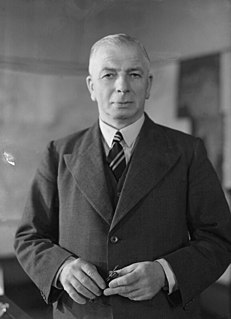 W
WAlbert Victor Alexander, 1st Earl Alexander of Hillsborough,, was a British Labour and Co-operative politician. He was three times First Lord of the Admiralty, including during the Second World War, and then Minister of Defence under Clement Attlee.
 W
WVice Admiral Sir Geoffrey Schomberg Arbuthnot, was a senior officer in the Royal Navy.
 W
WVice Admiral Sir Geoffrey Blake, KCB, DSO was an officer in the Royal Navy who went on to be Fourth Sea Lord.
 W
WAdmiral Sir Denis William Boyd, was a Royal Navy officer who served as Fifth Sea Lord from 1943 to 1945, and as Commander-in-Chief, Far East Fleet from 1946 to 1949.
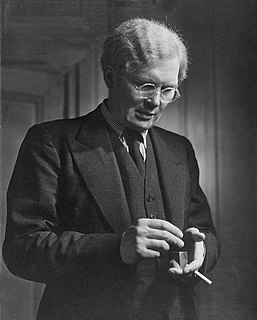 W
WBrendan Rendall Bracken, 1st Viscount Bracken, PC was an Irish-born businessman and a minister in the British Conservative cabinet. He is best remembered for supporting Winston Churchill during the Second World War. He was also the founder of the modern version of the Financial Times. He was Minister of Information from 1941 to 1945.
 W
WSir Frederick Brundrett, was a British civil servant and mathematician who served as the Chief Scientific Adviser to the Ministry of Defence from 1954 to 1959.
 W
WVictor Alexander George Anthony Warrender, 1st Baron Bruntisfield, MC, known as Sir Victor Warrender, Bt, between 1917 and 1942, was a British Conservative politician. He held minor political office between 1928 and 1945, notably as Parliamentary and Financial Secretary to the Admiralty from 1940 to 1945 in Winston Churchill's war-time coalition government. In 1942 he was ennobled as Baron Bruntisfield.
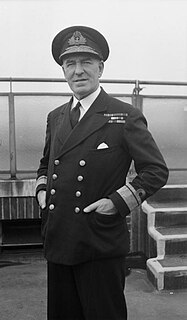 W
WAdmiral Sir Harold Martin Burrough was a senior Royal Navy officer and Assistant Chief of Naval Staff to the Royal Navy during World War II.
 W
WSir Winston Leonard Spencer Churchill, was a British statesman who served as Prime Minister of the United Kingdom from 1940 to 1945, during the Second World War, and again from 1951 to 1955. Best known for his wartime leadership as Prime Minister, Churchill was also a Sandhurst-educated soldier, a Nobel Prize-winning writer and historian, a prolific painter, and one of the longest-serving politicians in British history. Apart from two years between 1922 and 1924, he was a Member of Parliament (MP) from 1900 to 1964 and represented a total of five constituencies. Ideologically an economic liberal and imperialist, he was for most of his career a member of the Conservative Party, which he led from 1940 to 1955, though he was a member of the Liberal Party from 1904 to 1924.
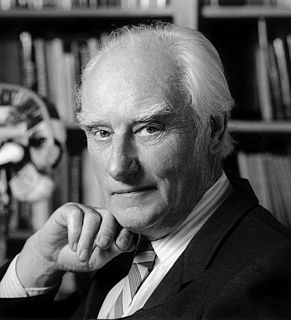 W
WFrancis Harry Compton Crick was a British molecular biologist, biophysicist, and neuroscientist. He, James Watson, and Rosalind Franklin played crucial roles in deciphering the helical structure of the DNA molecule. Crick and Watson's paper in Nature in 1953 laid the groundwork for understanding DNA structure and functions. Together with Maurice Wilkins, they were jointly awarded the 1962 Nobel Prize in Physiology or Medicine "for their discoveries concerning the molecular structure of nucleic acids and its significance for information transfer in living material".
 W
WAdmiral of the Fleet Andrew Browne Cunningham, 1st Viscount Cunningham of Hyndhope, was a senior officer of the Royal Navy during the Second World War. He was widely known by his initials, "ABC".
 W
WAdmiral of the Fleet Sir John Henry Dacres Cunningham was a Royal Navy officer. A qualified senior navigator, he became Director of Plans at the Admiralty in 1930. He saw action as Commander-in-Chief of the Mediterranean Fleet during the Second World War with responsibility for the allied landings at Anzio and in the south of France. He served as First Sea Lord in the late 1940s: his focus was on implementing the Government's policy of scrapping many serviceable ships.
 W
WAdmiral Sir John Hereward Edelsten was a senior Royal Navy officer who went on to be Commander-in-Chief, Portsmouth.
 W
WIan Lancaster Fleming was a British writer, journalist and naval intelligence officer who is best known for his James Bond series of spy novels. Fleming came from a wealthy family connected to the merchant bank Robert Fleming & Co., and his father was the Member of Parliament for Henley from 1910 until his death on the Western Front in 1917. Educated at Eton, Sandhurst, and, briefly, the universities of Munich and Geneva, Fleming moved through several jobs before he started writing.
 W
WAdmiral of the Fleet Bruce Austin Fraser, 1st Baron Fraser of North Cape, was a senior Royal Navy officer. He served in the First World War, saw action during the Gallipoli Campaign and took part in the internment of the German High Seas Fleet at the end of the war. He also served in the Second World War initially as Third Sea Lord and Controller of the Navy and then as second-in-command and afterwards as commander of the Home Fleet, leading the force that destroyed the German battleship Scharnhorst. He went on to be First Sea Lord and Chief of the Naval Staff in which role he assisted in establishing NATO and agreed to the principle that the Supreme Allied Commander Atlantic should be an American admiral, in the face of fierce British opposition.
 W
WAdmiral John Henry Godfrey CB was an officer of the Royal Navy and Royal Indian Navy, specialising in navigation. Ian Fleming is said to have based James Bond's boss, "M", on Godfrey.
 W
WAdmiral Sir Henry Harwood Harwood, KCB, OBE, was a British naval officer who won fame in the Battle of the River Plate.
 W
WRalph William Burdick Izzard, OBE was an English journalist, author, adventurer and, during World War II, a British Naval Intelligence officer.
 W
WAdmiral Sir Charles Edward Kennedy-Purvis was a Royal Navy officer who went on to be Deputy First Sea Lord.
 W
WSir James Lithgow, 1st Baronet, was a Scottish industrialist who played a major role in restructuring the British shipbuilding and steelmaking industries in the 1930s in addition to playing an important role in formulating public policy and supervising wartime production.
 W
WAdmiral Sir Charles James Colebrooke Little was a senior Royal Navy officer who went on to be Second Sea Lord and Chief of Naval Personnel.
 W
WJohn Jestyn Llewellin, 1st Baron Llewellin was a British army officer, Conservative Party politician and minister in Winston Churchill's war government.
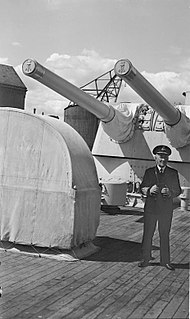 W
WAdmiral of the Fleet Sir Rhoderick Robert McGrigor GCB was a senior Royal Navy officer. He fought in the First World War and saw action during the Gallipoli Campaign and then the Battle of Jutland. He also served in the Second World War, taking part in the sinking of the Bismarck in May 1941, carrying out the office of Assistant Chief of the Naval Staff (Weapons) and commanding the 1st Cruiser Squadron during operations off the Norwegian coast and convoys to North Russia. Furthermore, he served as First Sea Lord in the early 1950s and is most remembered as a leading proponent of carrier-based air power.
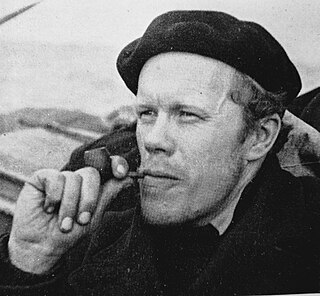 W
WMerlin Theodore Minshall was a British naval officer and adventurer. He is often claimed to have been one of the inspirations behind James Bond, the fictional spy created by Ian Fleming. Minshall worked for Fleming during the Second World War, as a member of the Royal Navy's Naval Intelligence Division.
 W
WCaptain The Hon. Ewen Edward Samuel Montagu, CBE, QC, DL, RNR was a British judge, Naval intelligence officer and author.
 W
WAdmiral Sir Henry Ruthven Moore was the last British admiral to command Home Fleet during World War II. He served in that post from 1944 to 1945.
 W
WAdmiral Sir Wilfrid Rupert Patterson was a senior officer in the Royal Navy. He was the Commodore Commanding His Majesty's Australian Squadron from September to November 1939. He participated in the naval battle that sunk the German battleship Bismarck.
 W
WVice Admiral Frank Henderson 'Rammer' Pegram, CB, DSO, was a British Royal Navy officer who played a prominent role in the Norwegian campaign during World War II who became Fourth Sea Lord and Chief of Naval Supplies and Transport.
 W
WJohn Devon Roland Pertwee, known professionally as Jon Pertwee, was an English actor, comedian, entertainer and cabaret performer. Born into a theatrical family, he served in the Royal Navy and the Naval Intelligence Division during the Second World War. In his early career he worked as a stage comedian, which included performing at the Glasgow Empire Theatre and sharing a bill with Max Wall and Jimmy James.
 W
WAdmiral Sir Arthur Francis Eric Palliser, KCB, DSC was a prominent British naval officer during the Second World War.
 W
WAdmiral Sir Tom Spencer Vaughan Phillips, was a Royal Navy officer who served during the First and Second World Wars. He was nicknamed "Tom Thumb", due to his short stature. He is best known for his command of Force Z during the Japanese invasion of Malaya, where he went down with his flagship, the battleship HMS Prince of Wales. Phillips was one of the highest ranking Allied officers killed in battle during the Second World War.
 W
WSir Richard Antony Pilkington, was a British Conservative Party politician and a soldier in the British Army.
 W
WAdmiral of the Fleet Sir Alfred Dudley Pickman Rogers Pound, was a British senior officer of the Royal Navy. He served in the First World War as a battleship commander, taking part in the Battle of Jutland with notable success, contributing to the sinking of the German cruiser Wiesbaden. He served as First Sea Lord, the professional head of the Royal Navy, for the first four years of the Second World War. In that role his greatest achievement was his successful campaign against the German U-boats and the winning of the Battle of the Atlantic but his judgment has been questioned over the failed Norwegian Campaign in 1940, his dismissal of Admiral Dudley North in 1940, and Japan's sinking of Prince of Wales and Repulse in late 1941. His order in July 1942 to disperse Convoy PQ 17 and withdraw its covering forces, to counter a threat from heavy German surface ships, led to its destruction by submarines and aircraft. His health failed in 1943 and he resigned, dying shortly thereafter.
 W
WAdmiral of the Fleet Sir Arthur John Power, was a Royal Navy officer. He took part in the First World War as a gunnery officer and saw action in the Dardanelles campaign. During the inter-war years he commanded the gunnery school at HMS Excellent and then the aircraft carrier HMS Ark Royal. During the Second World War he played a leading role in the planning for the Allied invasion of Sicily and for the Allied invasion of Italy and then commanded the naval forces for the actual landing of V Corps at Taranto in Italy in September 1943. He went on to be Commander-in-Chief of the East Indies Fleet in the closing stages of the war and conducted naval strikes on the Imperial Japanese Army in Borneo and Malaya. After the War he became Second Sea Lord and Chief of Naval Personnel, Commander-in-Chief, Mediterranean Fleet and then Commander-in-Chief, Portsmouth.
 W
WLieutenant Commander Richard Prendergast Raikes was an officer in the Royal Navy notable for being the commanding officer of the submarine HMS Tuna that launched the canoes during Operation Frankton in 1942. His part in the operation was portrayed in the 1955 war film The Cockleshell Heroes where he was played by Christopher Lee.
 W
WAdmiral Sir Alexander Robert Maule Ramsay, was a Royal Navy officer. He was the husband of Princess Patricia of Connaught, the youngest child of Prince Arthur, Duke of Connaught and Strathearn, third son of Queen Victoria. He served with distinction during the First World War. During the 1920s and 1930s, he held several important naval aviation commands.
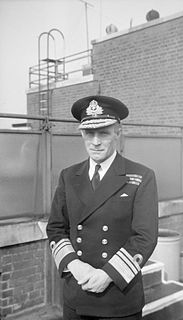 W
WAdmiral Sir Guy Charles Cecil Royle was a Royal Navy officer who went on to be Fifth Sea Lord and First Naval Member of the Royal Australian Navy.
 W
WSir Geoffrey Hithersay Shakespeare, 1st Baronet was a British Liberal Party politician.
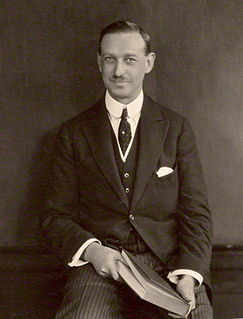 W
WJames Richard Stanhope, 7th Earl Stanhope,, styled Viscount Mahon until 1905, and known as The Earl Stanhope from 1905 until his death, was a British Conservative politician.
 W
WAdmiral Sir Edward Neville Syfret, was a senior officer in the Royal Navy who saw service in both World Wars. He was knighted for his part in Operation Pedestal, the critical Malta convoy, in the Second World War.
 W
WVice Admiral Sir Thomas Hope Troubridge, was a Royal Navy officer who served as Fifth Sea Lord from 1945 to 1946.
 W
WAdmiral Sir William Frederic Wake-Walker KCB CBE was a British admiral who served in the Royal Navy during World War I and World War II, taking a leading part in the destruction of the German battleship Bismarck, and in Operation Dynamo, the evacuation at Dunkirk.
 W
WAdmiral Sir William Jock Whitworth KCB DSO was a senior Royal Navy officer who went on to be Second Sea Lord and Chief of Naval Personnel.